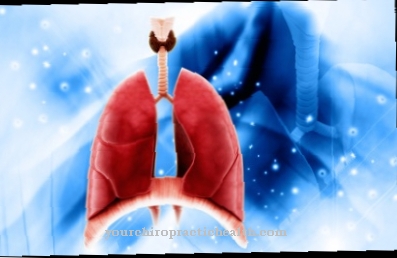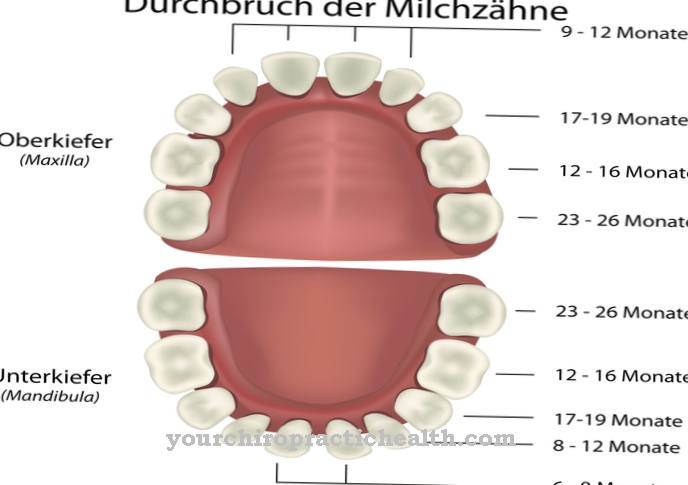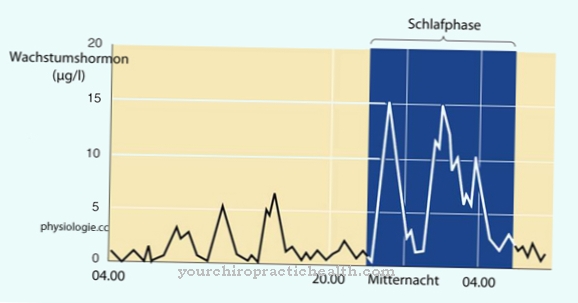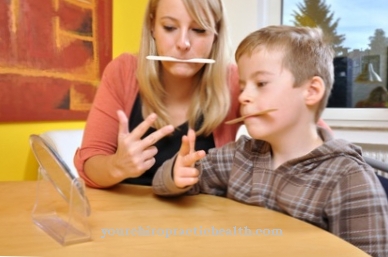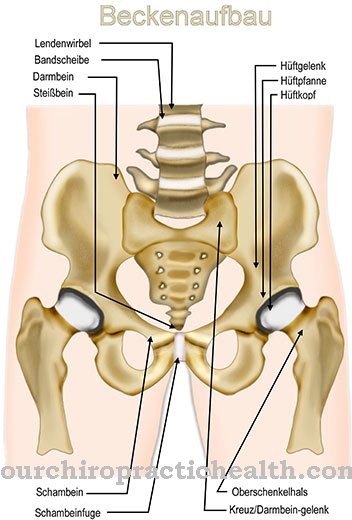Speak is a basic function of human communication and distinguishes humans from every animal in this area. Human language in this mature form does not occur in the animal kingdom and is a unique, very accurate way of communicating among humans.
What is speaking

Speech describes the movement of the tongue and the use of teeth and lips to formulate sounds. Lined up in a row, these words in turn make sentences and enable more loud communication. Many animals, especially mammals, communicate with one another using sounds, but this cannot be compared to speaking in humans.
Language is always part of speaking. Everyone has at least one mother tongue and, depending on their talents, is able to learn other languages. Language learning works best with children, the predisposition to speak and corresponding developments already happen in the womb. The child can hear the speech sounds of the parents and develops an affinity for their languages - it learns them particularly easily in childhood.
The ability to speak gave humans a great advantage in their evolutionary development, as they were able to communicate in a much more detailed and unmistakable manner than natural predators or prey by speaking.
Function & task
Speaking is at the core of human communication. Other, more primal elements also play a role, as is known from the animal kingdom, but an important part only comes from speaking.
While gestures, facial expressions and body language are also very important depending on the situation, details are communicated through speaking. Since humans have a complex psyche in addition to their language skills, they can often only or mainly express their processes through speaking.
Important elements of daily coexistence can also only be conveyed through speaking: requests for help, distribution of tasks and especially the topics of modern civilization cannot be conveyed through body language and Co. alone.
In addition to the ability to communicate with oneself, language fulfills important functions in terms of human interaction. It used to play a central role in the common hunt and made it possible to hunt better together and to make agreements that their prey was unable to make. For the social fabric, speaking performed a similarly important task as in our modern communication.
Speaking in one's own language or one's own dialect served as a demarcation from other communities, later from other municipalities and countries. Even today you can observe in rural regions that a completely different-sounding dialect is spoken in one village than in the neighboring town. This type of demarcation through speaking was not always, but in many cases it was decisive for the development of today's countries.
On the other hand, learning a foreign language enables communication with other cultures and, in times of globalization, the opening up of the whole world for individuals and the networking of cultures with one another. So speaking can be an exclusionary, but also an inclusive element of the highly developed human culture.
Speaking is a major milestone in the development of a child. While still in the womb, the child hears the language and voice of its parents and will later be able to recognize them. An understanding of the mother tongue of the parents, in which they speak to their child, is strengthened early after the birth. The first syllables and words that a child speaks come from their mother tongue and are an imitation of what their parents said. However, it takes years before a child can formulate full sentences.
You can find your medication here
➔ Medicines to improve concentration and language skillsIllnesses & ailments
The first irregularities in speaking are manifested in children. They can learn words incorrectly, which often happens when they have been spoken to in baby talk and then "re-educated". Some children develop developmental disabilities in that they cannot speak like children of the same age.
More rarely, they do not speak at all up to a comparatively old age. A well-known case was Albert Einstein, whose language skills turned out to be above average. However, speech disorders in children should be taken seriously and monitored. In most cases, the speech therapist can treat them well.
Well-known disorders of speech are lisp or stutter. Here, sounds are not formulated correctly or the psyche prevents the human being's ability to speak from developing as it should. These language disorders appear for the first time in childhood and can remain problematic for a lifetime, sometimes despite treatment by speech therapists and psychologists - people who stutter often have a long way to go to normalize their ability to speak.
Injuries to the parts of the body that are relevant for speaking or also congenital diseases and misalignments of these parts of the body lead to further speech disorders up to the complete inability to speak. Sometimes this also affects the sense of hearing, and those affected are deaf and mute.
A particularly complicated case is locked-in syndrome, in which not only the ability to speak has been lost, but also all forms of external communication. Those affected, often victims of severe accidents, have little opportunity to make themselves understood.

